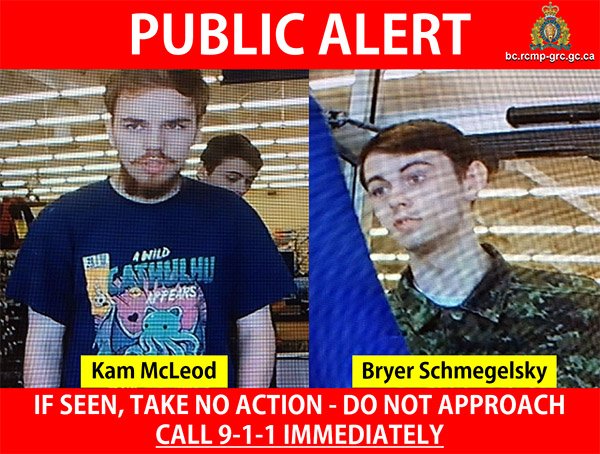
VANCOUVER — A certified criminal profiler says investigators should find clues about why two men might have killed three people in northern British Columbia and whether there was a leader and a follower by studying exactly how the victims were killed.
Jim Van Allen is the former manager of the Ontario Provincial Police criminal profiling unit and has studied 835 homicide scenes.
He says behavioural analysis will never have the certainty of fingerprint or ballistic evidence because it involves some interpretation, but it can help answer the big question of “why?”
The RCMP has said its behavioural analysis unit will assist investigators in the case of Bryer Schmegelsky and Kam McLeod, who were found dead in Manitoba last week and are suspected of killing three people in northern B.C.
Van Allen says analysts in the case will be reviewing crime scene evidence, interviewing friends and family of the suspects and looking over other material available to them, including online posts by the young men before their deaths.
The men were charged with second-degree murder in the death of Leonard Dyck, a University of British Columbia botany lecturer, and were suspects in the shooting deaths of Australian Lucas Fowler and his American girlfriend Chynna Deese.
Van Allen has no details about the McLeod and Schmegelsky case but says in general police can learn many details about behaviour from a crime scene.
He says while all murders are violent, particularly brutal killings can suggest explosive anger and lead investigators in cases where there are no suspects to look for someone who was evicted, fired or recently faced another challenge.
Van Allen says he has also looked at crime scenes where there are slight variations in how multiple victims are killed, which alerts investigators to the fact that there were two killers.